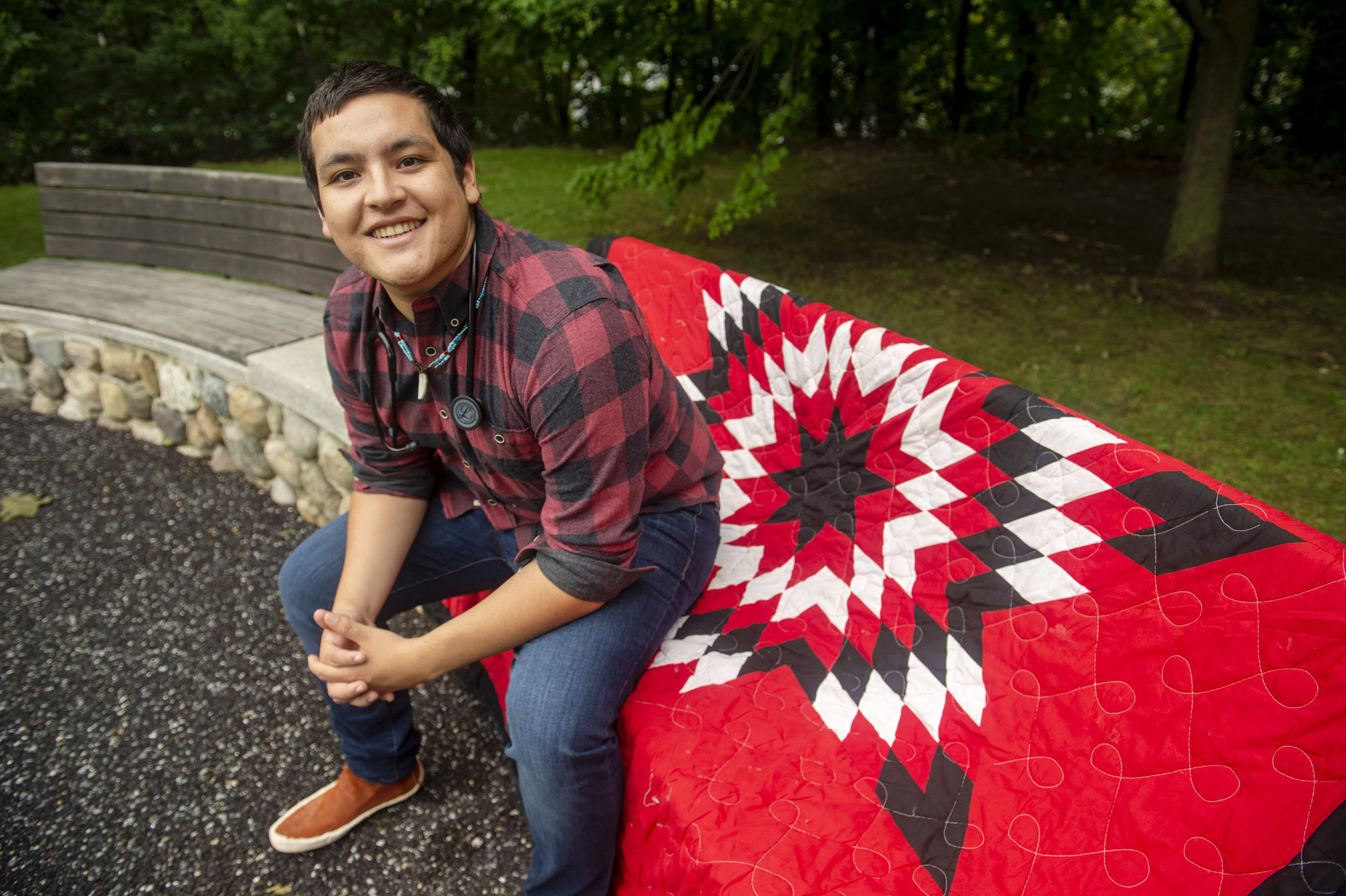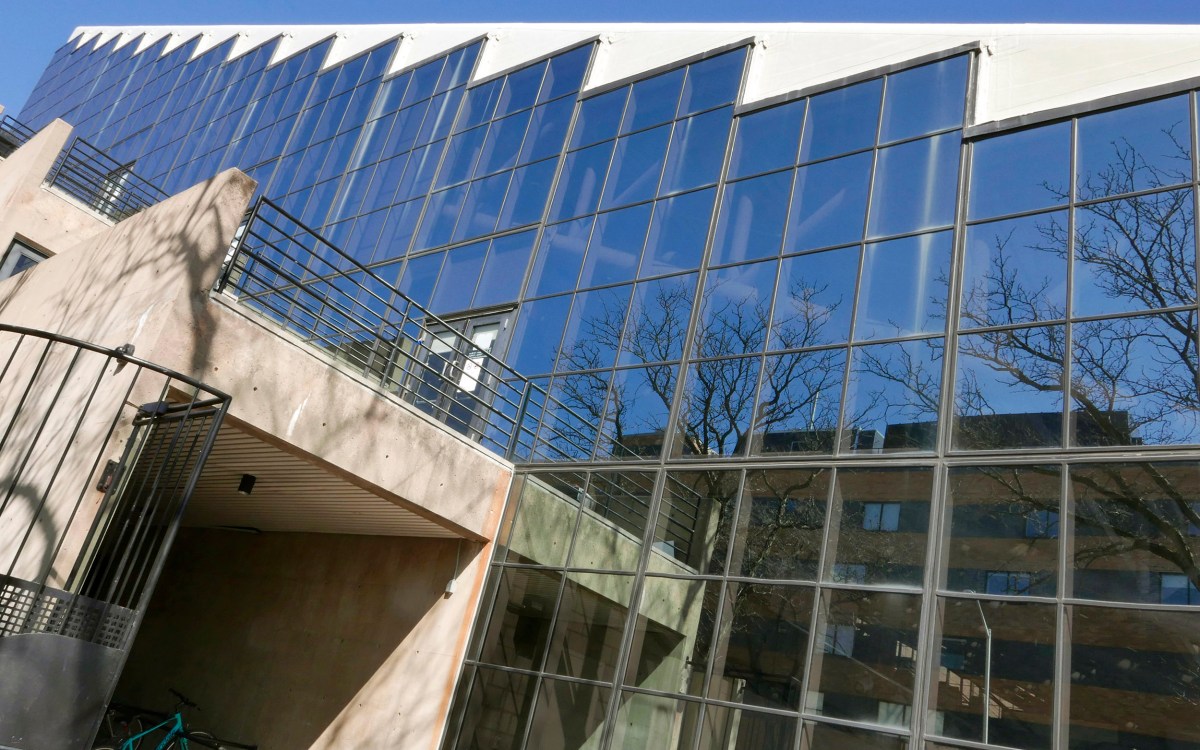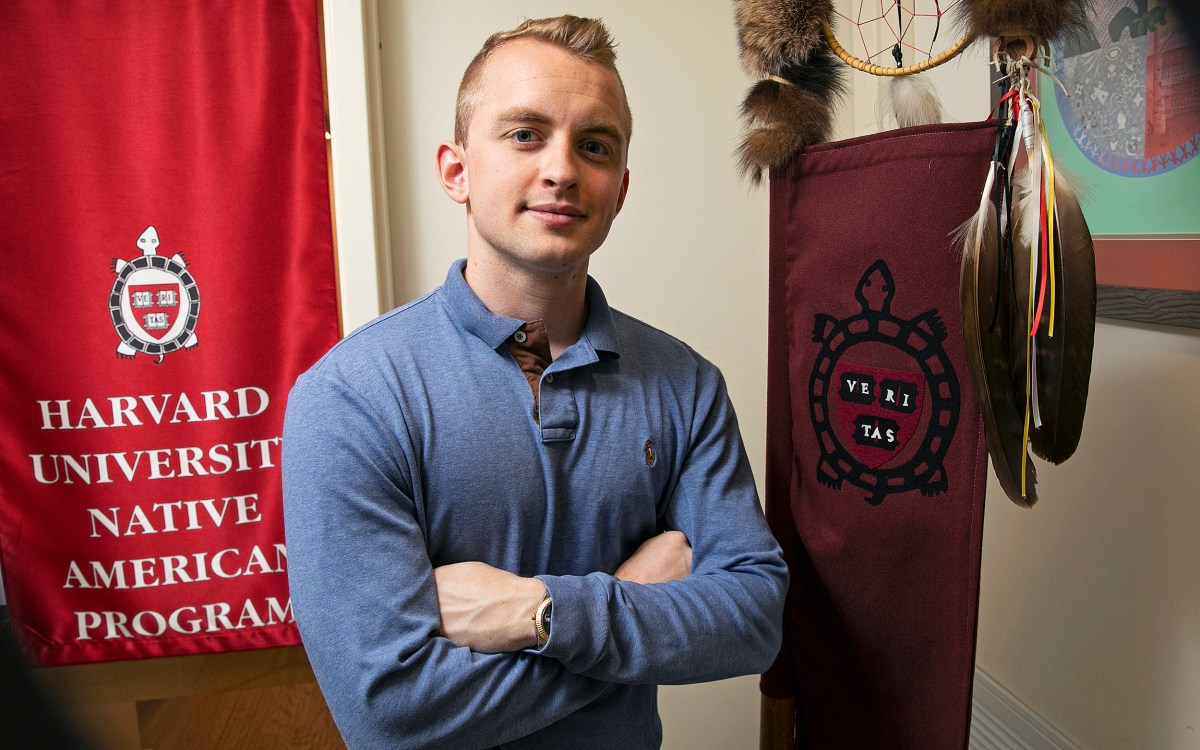
Victor Lopez-Carmen is the recipient of the 2021 Herbert W. Nickens Medical Student Scholarship. This award is given to third-year medical school students who have worked to eliminate inequities in medical education and health care.
Jon Chase/Harvard Staff Photographer
Fighting inequities in medical education, health care
Victor Lopez-Carmen becomes first Native American at Med School to win national Nickens scholarship
Victor Lopez-Carmen, a third-year student at Harvard Medical School, is used to being the first, the only, or at least among the few.
An enrolled member of the Crow Creek Sioux tribe, Lopez-Carmen is the first in his tribal nation to attend medical school and one of two Native American students in his class. And recently, he became the first Native American student at Harvard Medical School to receive a Herbert W. Nickens Medical Student Scholarship for his efforts to fight inequities in medical education and health care.
The scholarships are awarded by the Association of American Medical Colleges to five third-year students nationwide for their commitment to cultural diversity. Each U.S. medical school is allowed to nominate one candidate per year for the award, named after the late Herbert W. Nickens, vice president for minority and community programs at the association. A virtual celebration is scheduled for Oct. 27.
For Lopez-Carmen, the award is not only an acknowledgment of his advocacy for quality health care for Native Americans, but also a way to bring health disparities to the forefront. Native Americans experience high rates of diabetes, heart disease, cancer, asthma, and other chronic conditions whose risks are increased by persistent racial inequity, historical trauma, and a high poverty rate, according to the Centers for Disease Control and Prevention.
“I grew up experiencing and witnessing firsthand the health disparities we talk about in Medical School, and I know that invisibility in the field of health care can be life or death for my people,” said Lopez-Carmen. “I’m humbled and relieved that this powerful medical organization saw the merits in the work that needs to be done around promoting Indigenous health, Indigenous rights, and inclusion in medical education.”
Lopez-Carmen, who is also from the Yaqui Nation on his mother’s side, said he decided to become a doctor in the seventh grade, after experiencing the need for quality health care in his community. He suffered third-degree burns and had to be transported miles from his village to a hospital that could provide the care he needed. “I grew up knowing that the struggles are real,” he said.
As co-president of the Native American Health Organization at the Medical School, Lopez-Carmen developed teaching modules on Indigenous health for first- and third-year students, “filling an obvious and intractable void in the HMS curriculum,” said Andrea Ewing Reid, associate dean of student and multicultural affairs and director of the Office of Recruitment and Multicultural Affairs at HMS.
“I grew up experiencing and witnessing firsthand the health disparities we talk about in Medical School, and I know that invisibility in the field of health care can be life or death for my people.”
Victor Lopez-Carmen
“Victor combines compassion, insight, humility, and laser focus to raise awareness and create solutions to the myriad health care needs of Indigenous communities,” said Reid who nominated Lopez-Carmen for the Nickens award. “His work on behalf of Indigenous communities is unparalleled among medical students, as is his unwavering commitment to continue that work after Medical School.”
Part of that commitment involves ensuring he is not the last one in his community to become a physician. Lopez-Carmen is working with HMS faculty to establish an Indigenous youth pipeline program to the Medical School. “I have a responsibility to make Medical School a more inclusive space for future Native American students,” he said. “Our need is tremendous.”
A clinical elective Lopez-Carmen developed for HMS students on the Creek Sioux Reservation is expected to launch in 2022. During the pandemic, he joined the HMS COVID-19 student force, raised thousands of dollars for coronavirus relief for Native American communities, and founded Translations 4 Our Nations, an initiative to translate information about the virus into Indigenous languages.
Reid, a physician with a master’s in public health, said Lopez-Carmen was “an extraordinary candidate for the Nickens Award,” which includes a $5,000 scholarship. “I cannot imagine a more worthy recipient,” she added.
After Medical School, Lopez-Carmen, who also holds a master’s in public health, plans to return to his community to carry on his work to improve health care for Indigenous and minority populations.
“Almost always, I’m the only Native American in the room, and I have to stand up for our people because oftentimes we’re left behind or forgotten,” he said. “This award gives me hope that more of us are being recognized in these spaces where we had been historically marginalized, and that our issues are being prioritized, which will positively impact the health of future generations.”







